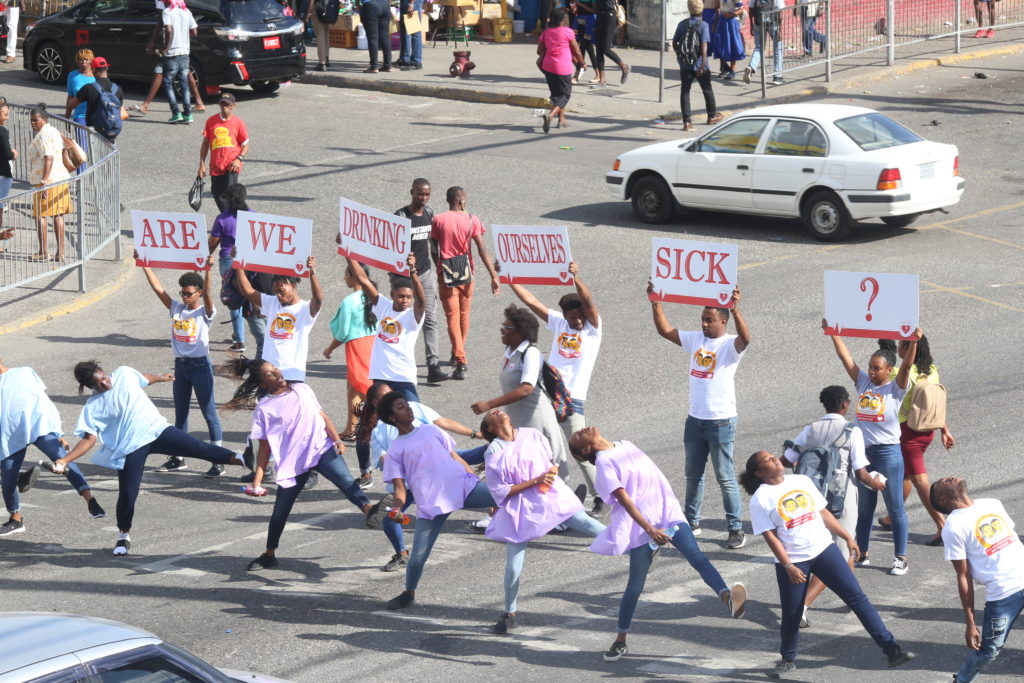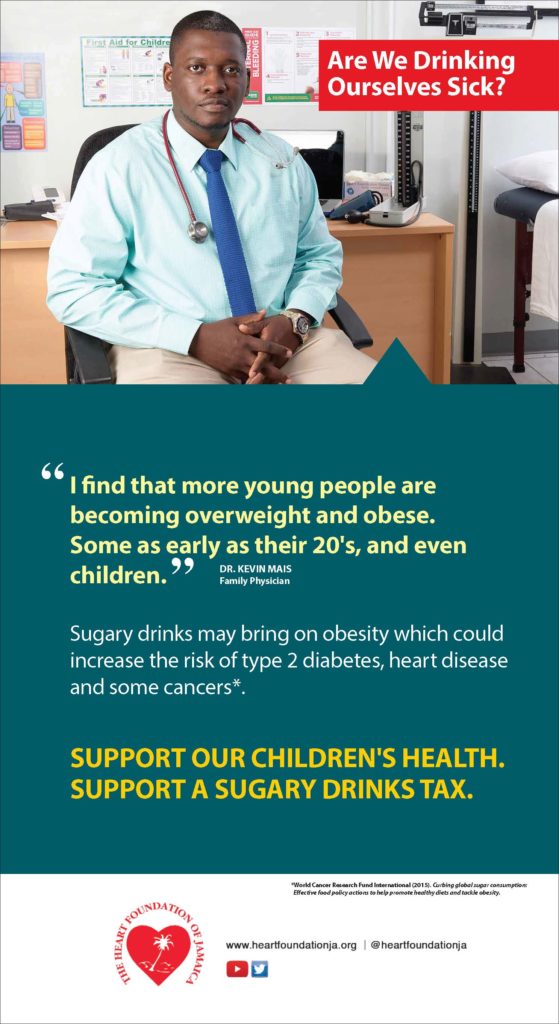
More than half of Jamaicans are overweight or obese, and the picture is especially alarming for teens, with obesity rates among 13- to 15-year-olds increasing sharply in recent years. Since obesity increases the risk of Type 2 diabetes, heart disease and some types of cancer, the future health of Jamaica’s population is at risk.
The Jamaican government and nongovernmental organizations have responded by ramping up efforts on obesity prevention, including a restriction of sugary drinks in schools since January 2019. NGO partners now aim to build support for the tax on sugary drinks.
World Health Organization, Pan American Health Organization and the International Diabetes Federation have all warned that excess sugar consumption is a major cause of obesity. Recent publications demonstrate that a tax on sugary drinks can lead to a reduction in consumption especially among low income populations. Revenue generated by these taxes can then be spent on efforts to improve health care systems, encourage healthier diets, and increase physical activity.
Other Caribbean and Latin American countries that have introduced a sugary drinks tax have seen a decline in consumption. In Mexico, the tax resulted in a 9.7% decline in sugary drinks sales; in Barbados, sales declined 4.3% and bottled water sales increased 7.5% in the first year of implementation.
The case for a tax is clear in the health data. In Jamaica, the 2017 Global School-based Student Health Survey shows a worrisome increase in obesity among students aged 13 to 15, when compared to the 2010 survey. Obesity rates in boys have almost doubled from 5.3% to 10.3%. The girls are not far behind with obesity rates increasing from 6.7% to 9.9%.
To build support for a sugary drinks tax in Jamaica, The Heart Foundation of Jamaica, with technical support from Vital Strategies, has implemented a series of strategic mass media campaigns which have significantly and positively contributed to public debate on the issue.
The latest campaign, “Are We Drinking Ourselves Sick?” tells the truths of real Jamaicans: a man with Type 2 diabetes, a family physician and a dental surgeon. Each testimonial tells the real-life story from a first-person perspective of the actual and possible health consequences of excess consumption of sugary drinks. The campaign calls for people to support the health of Jamaican people by supporting a sugary drinks tax.

The campaigns have prompted national discourse about the health harms of consuming excess sugary drinks and policies, such as a sugary drinks tax and national school nutrition policy, which can strengthen obesity prevention initiatives. More than three-quarters of Jamaicans expressed a concern about the impact of sugary drinks on child health with almost half of parents (46%) saying their children consume most of their intake of sugary drinks at school.
Our survey, conducted in collaboration with Hope Caribbean, shows that 82% of Jamaicans support a sugary drinks tax if the proceeds go towards funding obesity prevention programmes, particularly for children; and 71% support a sugary drinks tax in general. With such high levels of public support and a strong commitment from government on reducing sugary drinks consumption in schools, partners in Jamaica are optimistic that this issue will be on government’s policy agenda in the near future.